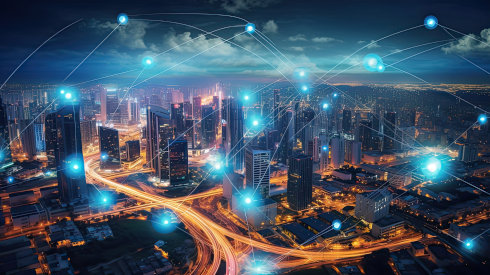In a globalised world, where economies and societies are increasingly interconnected, the opportunities for growth and prosperity are abundant. However, this interconnectivity has also given rise to a darker side; one where criminal actors exploit economic and financial systems for their own personal gain.
Europol, which supports EU Member States in preventing and combatting all forms of serious international and organised crime, has recognised the urgency of addressing this issue and has presented its first-ever European Financial and Economic Crime Threat Assessment. This comprehensive report sheds light on the intricate world of financial and economic crimes at the EU level.
The parallel criminal financial system
Europol’s assessment reveals that organised criminals have essentially constructed a parallel global criminal financial and economic system, built around money laundering, illicit financial transfers, and corruption. These three practices are the cornerstones that criminals employ to conceal, move, and profit from their unlawful gains. The ability to launder illicit proceeds on an industrial scale, move them through a web of criminal financial brokers, and corrupt relevant actors, has become indispensable for the success of modern organised crime.
The impact on society
Criminal actors involved in economic and financial crimes exploit vulnerabilities in economic and social systems to generate enormous illicit profits. This not only affects the stability of financial systems but also contributes to the growth of a parallel underground society, where individuals rely on organised crime for their economic sustenance. Vulnerable demographics, especially disaffected youth, are the most susceptible to this parallel society, which erodes trust in societal institutions and the rule of law.
The challenges
Financial and economic crimes are among the most challenging criminal activities to investigate and tackle. The landscape is highly fragmented, with various criminal actors interacting and often operating independently from established structures. They remain anonymous, and their techniques continually evolve, especially in the cyber realm. Recent investigations into encrypted communications among criminals have provided unprecedented insight into this underground financial ecosystem.
The role of Europol
Europol recognises the magnitude of the threat posed by financial and economic crimes and has taken proactive steps to address it. In 2020, the European Financial and Economic Crime Centre (EFECC) was established to support national law enforcement authorities in their fight against these crimes and to facilitate international cooperation and information exchange. Europol’s capabilities in asset recovery and financial investigations have expanded to meet the growing demand for its services.
The European Financial and Economic Crime Threat Assessment
Europol’s assessment covers a wide range of financial and economic crimes affecting the EU, including money laundering, corruption, fraud, intellectual property crime, and commodity and currency counterfeiting. It emphasises the importance of asset recovery as a critical tool in combatting these crimes. The report’s findings are based on a combination of operational insights and strategic intelligence contributed by EU Member States and Europol’s partners, offering valuable information about the criminal business models.
Key takeaways
Serious and organised crime continues to pose a significant threat to the internal security of the European Union. Criminal actors involved in financial and economic crimes are adept at exploiting vulnerabilities within our systems and targeting vulnerable individuals. Europol’s European Financial and Economic Crime Threat Assessment sheds light on the complexity of these crimes and the criminal ecosystem that sustains them.



